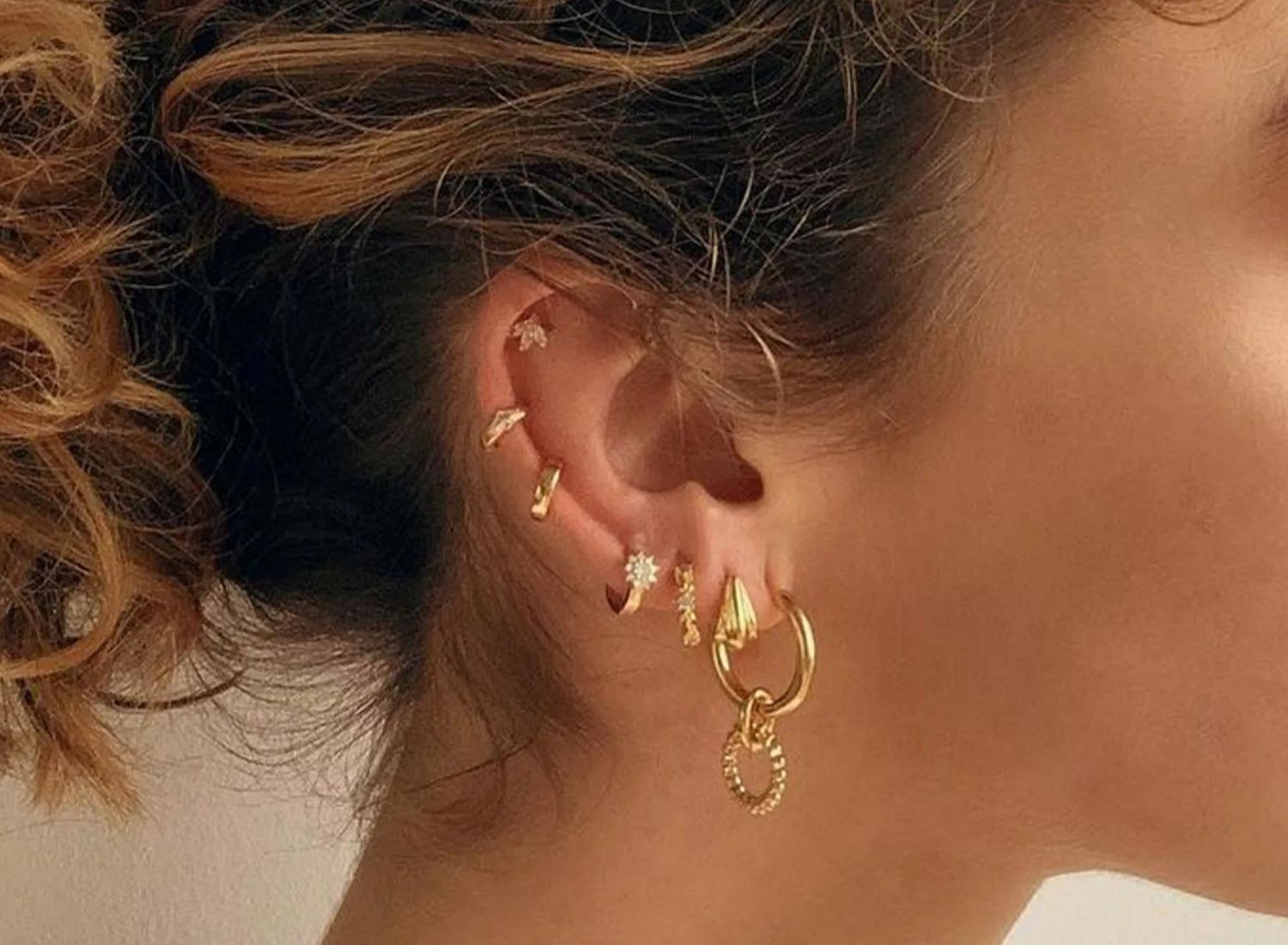7 Tips To Care For Your Piercings During Monsoon!

Piercings are an age-old trend that never goes out of fashion. No matter your aesthetic, adorning yourself with piercings remains the trendiest thing on the block. While they look beautiful, be it nose piercings, high piercings, or helix piercings, they require maintenance and a great deal of care, especially if they are fresh during the monsoon season.
Apparently, according to popular belief, one cannot get piercings during the rainy season! But we’re here to bust that myth. It is not a bad idea to get a piercing during monsoons. In fact, you can get it at any time of the year. However, there is a lot of moisture and humidity in the air during the rainy season. Therefore, the healing process is slow and requires a lot more care.
Professionals have established that the dryer the air, the quicker the healing is. Thus, the time from October to April is considered the best time of the year to get a piercing. During winter, the skin grows and heals faster. Therefore your piercing will heal quicker and remain free from infections. You have to hold up for your piercing to heal patiently. Thus, we bring you seven tips on how to care for your piercings during the monsoon season.
7 Tips To Care For Your Piercings During Monsoon!
1. Maintain Proper Hygiene
Fresh piercings should be washed with soap or with saline solution at least twice a day. It will help in keeping the piercing clean and free from infections. However, you must avoid rubbing it with alcohol, as it may dry it to an unhealthy level. It may get too dry, resulting in cracks and bleeding. Consequently, it would remain open and not heal completely. For washing and cleaning your piercing, oil-based soaps are recommended to keep it from drying excessively. It helps in cleaning the wound, as well as softens the healing tissue.
Furthermore, before you touch the pierced area, wash your hands with soap to avoid infecting it with germs. You should also avoid sweating and stay away from chemical products. It is essential to keep the piercing dry and clean. Wearing the same jewelry for 90 days and rotating it into place twice a day is a must.
2. Eat Healthy And Maintain A Good Diet
It is not always essential to care for your piercing physically. A significant portion of caring for it is to maintain a healthy diet and avoid certain food items. It surely helps a great deal. Professionals recommend staying away from alcoholic beverages and food items that contain citrus. Some even suggest avoiding eating chickpeas while your piercing is still healing, especially during the rainy season.
Keep your body hydrated because even though it is essential to dry the piercing, excessive dryness can be harmful. You should also avoid adding additional trauma to the pierced area.
3. Let It Heal Naturally
Although infections are expected, they only occur when you’re careless and do not take proper care of your piercings. Healing is a natural process; the pierced areas should be left undisturbed while keeping them clean. Excessive touching is very harmful to fresh piercings during monsoons. Irritations may occur from bumping or sleeping on freshly pierced areas. You have to be patient and let the healing proceed gradually. Professionals recommend some home remedies to fasten the healing process. These include tea tree oil, salt water, and dry neem stick.
4. Wear Jewelry Made Of Surgical Steel
It is essential to start with jewellery made out of surgical steel for fresh piercings. The most common recommended metals are gold, silver, and steel. You can switch to any other material after your piercing heals. But during monsoons, surgical steel is the recommended material. However, the healing process concerning the jewellery’s material can depend on your skin type.
5. Sterilize Your Piercings
One of the most vital efforts to care for your piercing is to sterilize it. This prevents infection to a considerable extent. Your piercing might be at a higher risk of infection if the instrument and the ornament of the piercing are not properly sterilized. Bacterial infections become very common during monsoons. Sterilization is the prevention that must be followed for fresh piercings. Transmission of HIV is also a rare possibility in the case of unsterilized ornaments.
6. Different Piercing Areas Have Different Healing Periods; Keep An Eye Out
Taking care of your piercing is not limited to cleaning and eating right. It extends to know about the types of piercings and the healing time they require. You should know about cartilage piercings and ear lobe piercings. So that you can patiently wait while it heals.
Cartilage piercings take longer to heal than ear lobe piercings. The cartilage area is more temperamental and takes about ten months to heal. The healing process can also be challenging. In contrast, an ear lobe piercing may take two to three months.
You must keep an eye out for the healing signs and know how much time you need to wait for it to heal completely. Once it has fully healed, it will stop hurting, the swelling will subside, and it will not secrete any fluid. Furthermore, all redness disappears.
Moreover, it is essential to prepare yourself mentally to let it heal and soothe. It’s the job of the body’s immune system to remove all foreign objects. You must nurse it and be careful with it while it recovers.
7. Consult A Doctor Immediately If An Infection Occurs
Do not panic. That’s the essential tip that you can receive. If your piercing is bothering you, consult a doctor or a professional. However, nine times out of ten, any redness or swelling is simply a sign of irritation and not an infection. But if the irritation persists, do not delay consulting a doctor or try treating it at home.
Here, we rounded up a few suggestions to care for your fresh piercings and rock the age-old trend.



